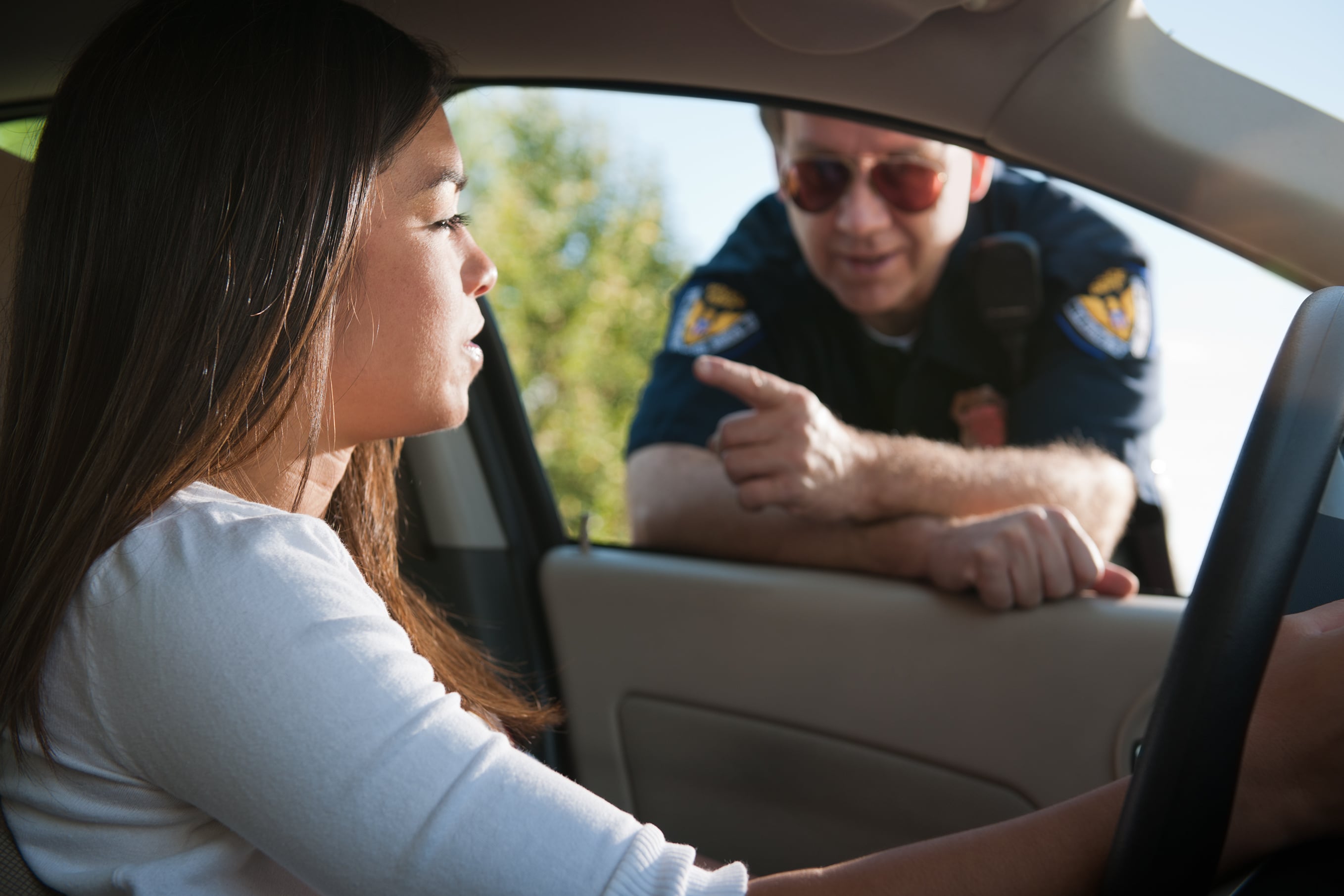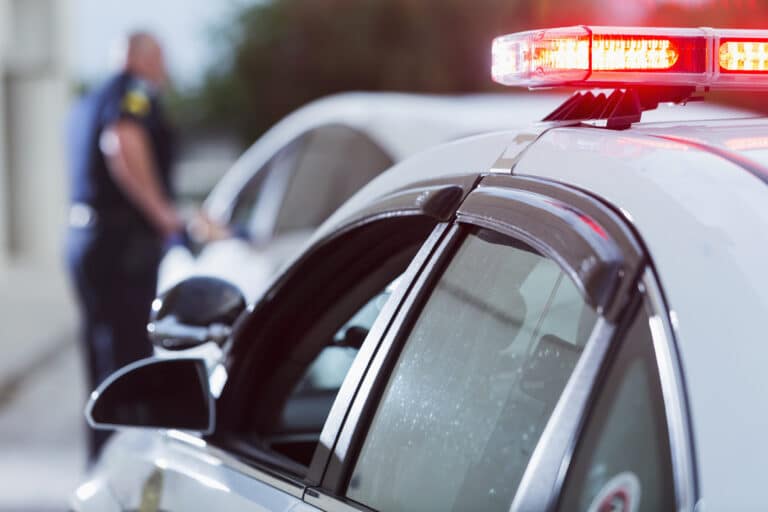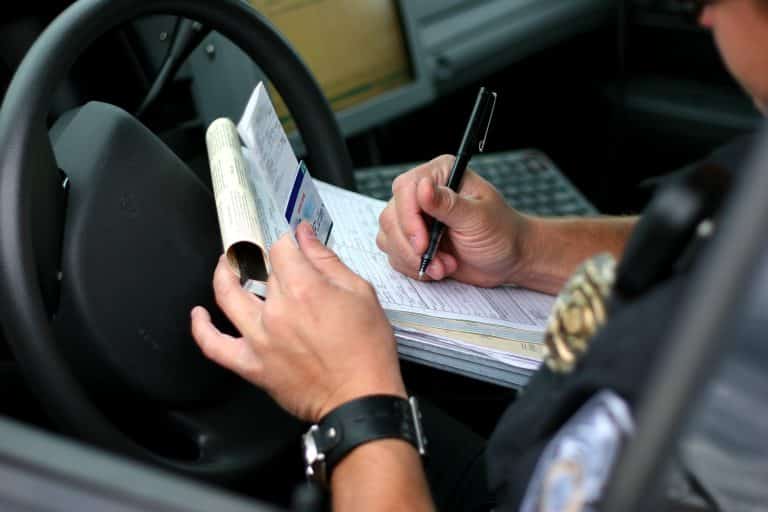Bad cops get all the press, but most police officers are as law-abiding as the citizens they protect. Still, there are rules that police must abide by when conducting traffic stops, speaking to you at your home, or approaching you on the street. Even more so, people need to understand that just because the law allows something, doesn’t mean it’s a good idea.
During a Traffic Stop
Cops need a reason for the stop: When police conduct a traffic stop, that stop must be valid. A person can be pulled over for not signaling, a broken taillight, or any other traffic violation. An offense must be the impetus for the stop. An officer cannot pull someone over just because they want to or feel the person “doesn’t belong” in the neighborhood.
Cops need a reason to search the vehicle: If police want to search your vehicle, they have to explain it. They need to be able to articulate what the suspicion is. A hunch is not enough. Maybe the officer smells a whiff of marijuana or alcohol. That could be a sign of driving while intoxicated. The same thing goes with seeing bloodshot eyes. Even a certain level of nervousness during questioning can be cause for further investigation. The initial stop may be traffic, but officers have tools they can use to raise the bar.
Cops need a warrant to open locked areas of the vehicle: Without a warrant, an officer can only look in the driver and passenger compartments of the vehicle. To search the trunk or glove box (even if the latter isn’t locked), police need a judge’s approval. To get that, again, they must be able to articulate why they need to search the area, as well as what they suspect may be there, and what evidence justifies this search.
Cops can seize your car upon arrest: If there’s probable cause to arrest a driver, police can impound the vehicle. Again, they can’t go into the glove box or trunk without a warrant. Police can only go with what they can see or reach—under the seats, etc. The reason is there may be personal items in those areas that they aren’t entitled to. When police impound a car, they take inventory. If they can’t secure the vehicle then they have to secure the items inside the vehicle.
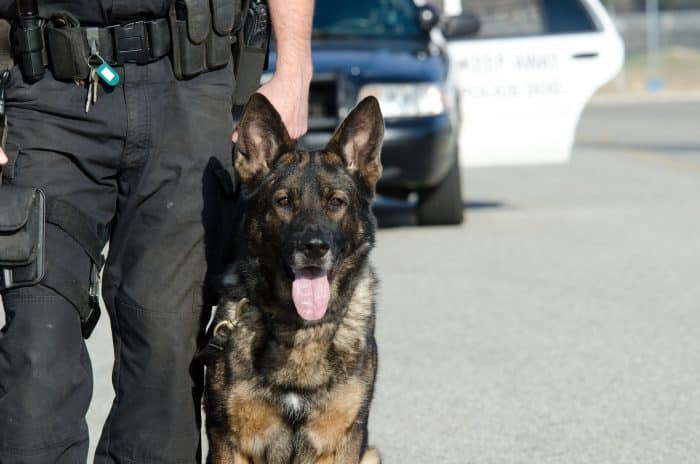
Cops can call a K9 unit if there’s reasonable suspicion of drugs: Police must always ask for consent to search any locked part of the vehicle. If the person doesn’t consent, and there is reasonable suspicion of drugs, the officer may call a K9 unit. This suspicion could include traces of drugs on the floor or visible drug paraphernalia. In some cases, if the driver is unusually nervous or can’t (or refuses to) answer certain questions, that may be enough.
Cops cannot make you exit the vehicle (but you should): If police ask a person to step out of the vehicle, technically the person doesn’t have to. That said, refusing raises a level of suspicion. The more noncompliant a person is, the harder it is for officers to do their job. A while back, there was a publicized incident in which a person recorded his interaction with an officer during a traffic stop. The driver would not roll down the vehicle window more than a crack. He was being noncompliant and evasive. Finally, the officer said something to the effect of, “If you don’t roll down the window, I’m going to break the window and drag you out.”This sounds excessive, but it’s permissible in this case. The person was refusing to allow the officer to conduct a basic traffic stop and escalated things unnecessarily.
Cops can demand you show ID: Refusing to provide identification during a traffic stop is grounds for arrest. At the most basic level, you have to have a driver’s license to drive a car. If you don’t have it, that’s a ticketable offense. If you have it and refuse to show it, that’s going to escalate the situation.
Standing on the Street
Cops can ask you questions (but you don’t have to respond): Police have a common right of inquiry. That means they can ask anyone questions at any time for any reason. But people also have a right to privacy, so if an individual is standing on a corner minding his own business, he does not have to answer an officer’s questions and can even curse at the officer. It sounds like a contradiction, but it makes sense: it doesn’t infringe on your rights to ask questions, but there’s nothing compelling you to answer those questions.
Cops can arrest you off the street with probable cause: Now, if the location where one is standing is a common spot for drug transactions, or if the officer sees some kind of transaction, he or she can ask questions with reasonable suspicion. From there, an officer has to judge the situation based on the person’s reaction. The way the person moves or talks back can reveal if he or she has anything to hide or reason to be afraid of the police. If the reaction to questions or the answers provides enough cause, a person can be arrested off the street.
Cops can cuff and search you (sometimes): If an officer feels his or her life is in danger, then the officer can cuff or search a person (e.g., conduct a pat-down). This may be triggered by body language, such as hiding one’s hands or hovering them around the pocket or waistband. Police have a right to insist on seeing someone’s hands for obvious reasons. Keep in mind that you can be handcuffed and/or patted down, but not arrested. As long as the officer has a reasonable concern for his or her safety, there is nothing wrong with this.
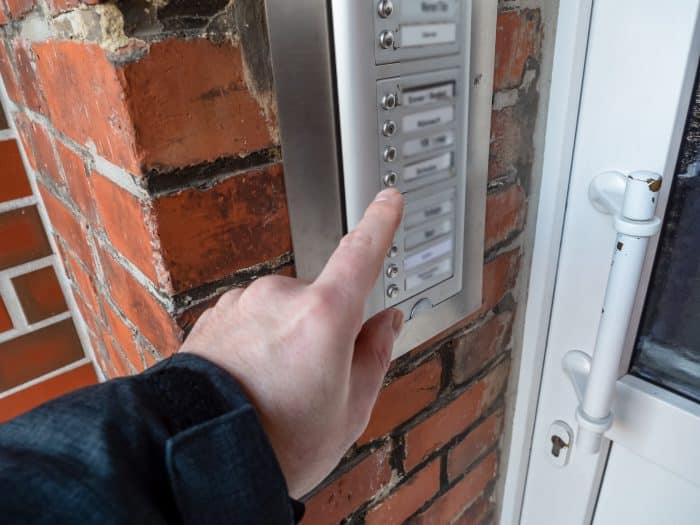
At Your Home
Cops need a reason to knock on your door: Officers don’t knock at random. Most of the time when an officer approaches a home it is due to a domestic disturbance call. A neighbor or relative may call and ask us to check-in, saying they heard screaming, glass breaking, etc. Many times it’s a child that calls from inside the home. Other times, a call may come in response to a credible tip (more on that later) or because he or she was named as a witness or suspect in a crime.
Cops need consent (or a warrant) to enter: Similar to a traffic stop, an officer can only operate based on what he or she can see. If the person won’t allow police to enter and they can’t see any signs of violence from the doorway, there is little they can do. For most domestic disputes, police don’t have a complainant, meaning they can’t call back the person who reported the incident to get more details that could help. If police do have a complainant, and they can’t get inside the home, they can call back for more information and re-approach. If police get specific enough details, that may allow them to enter the home under certain pressing (“exigent”) circumstances; this means that there is an urgent belief that a crime has been committed, is being committed, or is about to be committed. Similarly, it can apply when there is reason to believe that evidence is about to be or has been destroyed.
Cops can only gather evidence in plain sight: Once police are inside a home, whether it is for a domestic disturbance or any other reason, if they don’t have a warrant, they can only view evidence that is in plain sight. That means an officer can’t search your cabinets or dresser drawers, look under the couch, etc.
Cops usually cannot search your person: Just like when a person is on the street or in a vehicle, an officer shouldn’t restrain or search you unless you’ve done something to make him or her feel unsafe. Even then, there are often noninvasive ways police can search a person. For example, if the officer is familiar with the person, he or she might touch your stomach and say, “Hey, are you gaining weight?” to check for a gun.
Cops can cuff and restrain you in your home: If an officer is in your home for any reason and you’re being combative, he or she may be straight with you, and say, “If you don’t calm down, I’m going to cuff you for everyone’s safety.” This is permissible, and many times the threat alone gets some cooperation.
Cops can conduct a detailed search under the right circumstances: An officer who enters a home for any reason and sees something that could indicate a crime can conduct a more thorough search. Such evidence might include a load of cash sitting around, bloodstains, weapons in plain sight, or traces of drugs.
When There’s a Warrant
With a warrant, police can and will scour every nook and cranny of the home (or vehicle). This can be upsetting and feel very invasive, but if there’s a warrant that means there’s a good reason for police to be doing so. However, that doesn’t mean police don’t understand how difficult this is on a person.
When executing a warrant search, you often see the residents escorted outside or even into a squad car. Most of the time this is to spare them from having to watch the police upturn their possessions and go through their personal stuff.
Of course, you don’t have to leave. But if you are getting in the officers’ way, being difficult or a nuisance, or worse, doing something suspicious, you may be escorted forcibly from your own home. In extreme cases, you could be handcuffed or even arrested.
When You Match a Description
Sometimes, during a traffic stop or even just on the street, police might see someone that fits a description of a suspect. A lot of these descriptions are very broad (e.g., white male, dark hair, 5-foot-10, gray t-shirt) and there are often cases of mistaken identity. Plenty of people look like that.
Still, police have more than a right—they have an obligation—to question anyone who matches a description. If you haven’t done anything wrong, you may feel picked on or stereotyped. But it would be irresponsible for officers to not inquire if they can.
A Note on Tips
Police sometimes get tips from other citizens about possible crimes going on in a home. They might claim there is drug dealing, prostitution, an illegal weapon, etc. But police can’t act on these tips unless they are credible.
Police consider a tip to be credible if the detail is sufficient to satisfy a warrant. It has to be clear what crime is being alleged and what leads them to believe it.
A Note on Recording Police
I’ve said in other articles that a person has the right in New York to take a video of their interaction with police. Keep in mind, however, that while police should feel comfortable being recorded, many times they do not. A video can be edited and clips can be taken out of context.
So, while some officers may be on their best behavior for a camera, others may get more upset. Of course, a cop can’t hurt you or arrest you just because they don’t want to be recorded, but they could write a traffic ticket in a situation where they might have otherwise just let you off with a warning. So people need to use their judgment before hitting “record.”
